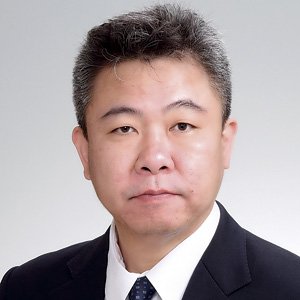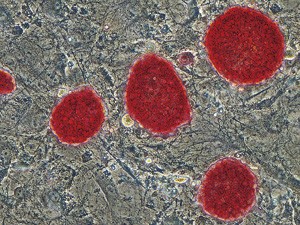
-

Medicine
-

Biology
FUKUDA Tomokazu Professor
Course
-
Master's Program
Biological Sciences
-
Doctoral Program
Fundamental and Applied Sciences
Degrees Obtained
- Doctorate (Medicine) Degree: Neoplastic Pathology
Fields of Research
- Cell Engineering
- Molecular Genetics
- Stem Cell Biology
- Animal Genetics
Profile
- March 1991: Graduated from Faculty of Agriculture, Kobe University
- April 1991 - March 1993: Master's Program, Department of Natural Sciences, Kobe University Graduate School
- April 1993 - March 1995: Researcher, Sumitomo Chemical Company, Limited
- April 1995 - March 1999: Doctoral Program, Department of Medicine, Nara Medical University Graduate School
- April 1999 - January 2001: Fixed-Term Researcher, Department of Experimental Pathology, Japanese Foundation For Cancer Research
- February 2001 - April 2005: Visiting Fellow, Laboratory of Molecular Carcinogenesis, National Institute of Environmental Health Sciences & National Institutes of Health (NIEHS-NIH), USA
- May 2005 - March 2008: Researcher, Department of Biochemistry, National Cancer Center Research Institute
- April 2008 - March 2016: Associate Professor, Graduate School of Agriculture Science, Tohoku University
- April 2016 - Present: Professor, Chemistry and Bioengineering Department, Faculty of Engineering, Graduate School of Engineering, Iwate University
Research Themes
Research related to infinitely dividing cells and induced pluripotent stem cells
We discovered that it is possible to induce the infinite division of cells, while retaining their original genomic statuses and properties, by introducing the three common genes related to the cell cycle in broad range of animals. Advances have also been made in recent years in individual and functional regeneration by applying induced pluripotent stem cell (iPS cells) technology, which has been making extraordinary progress, to animals. We create new cells using the technologies in these cells, and use them as research resources with other researchers around the world.

Teaching Philosophy
I aim to educate students to develop an understanding of the cells and genes needed for bioengineering, the technologies needed to analyze proteins, and the latest bioengineering technologies so that they have the confidence to move forward in the directions they want.


